Lizette Larson-Miller on Baptism, Ordination, and Belonging
A conversation ahead of the 2023 Annual Lecture Series

Some Episcopal parishes have made communion without baptism common practice despite being restricted by the Church’s canons. Unsurprisingly, many theologians were deeply concerned last year when a proposal came before the Church’s legislative committees on Prayer Book, Liturgy, and Music to repeal Canon I.17.7. The canon states, “No unbaptized person shall be eligible to receive Holy Communion in this Church,” and its repeal would, in effect, pave the way for the unbaptized to receive communion.
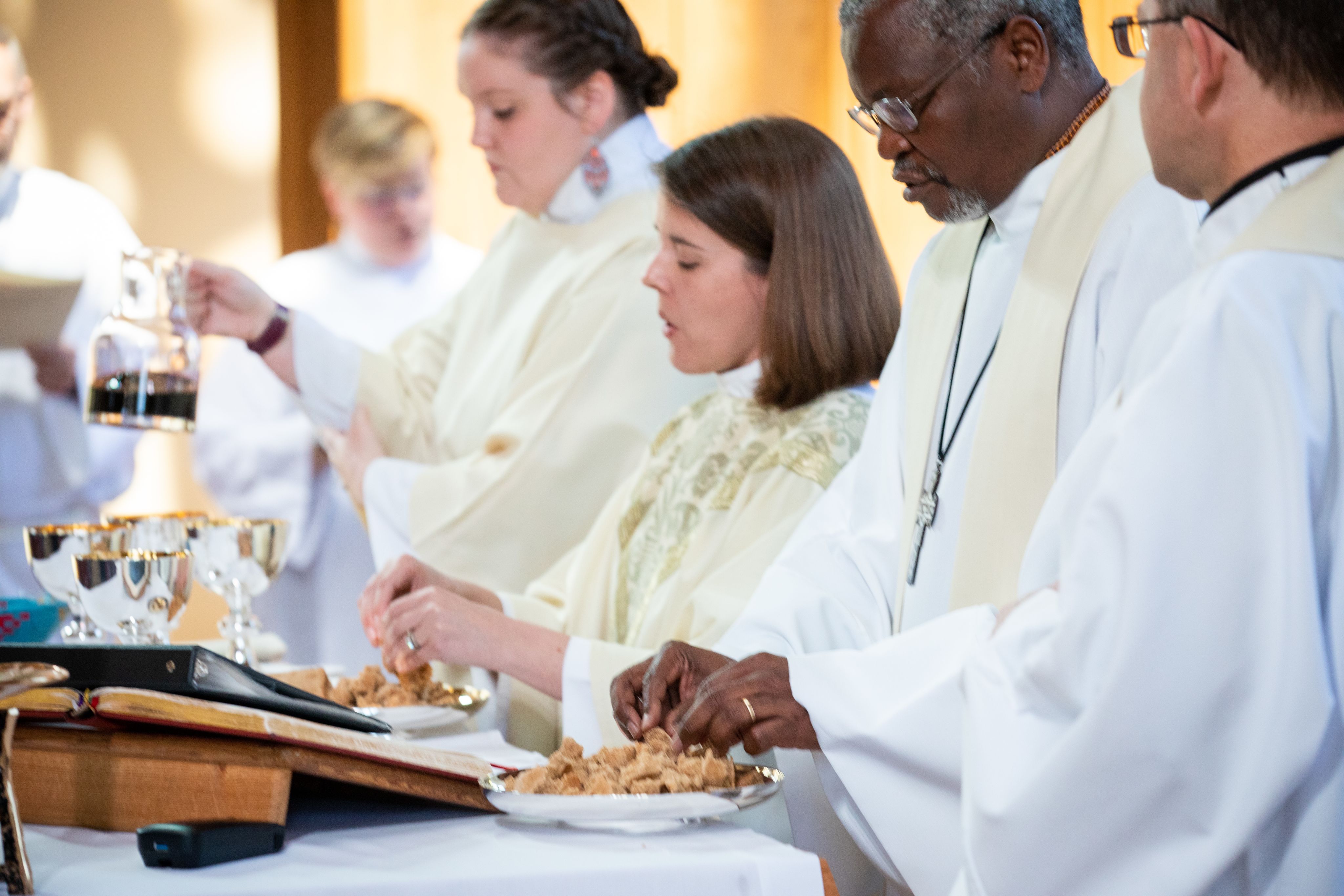
In response, a group of 22 theologians from various seminaries sent a letter to the committee expressing apprehension about what they said was a misunderstanding of sacramental theology expressed in the arguments for opening the eucharist to all who wish to receive it. In the summer of 2022, just prior to the 80th General Convention of the Episcopal Church, the proposed resolution seeking to eliminate the canon died in committee.
Associate Professor of Theology the Rev. Dr. Robert MacSwain drafted the letter with input from the 22 signatories. At the time, MacSwain told the Episcopal News Service that “the main impetus was a more pervasive sense that the Episcopal Church needs to do a better job of clarifying and communicating its understanding of baptism and eucharist and their intimate relationship.”
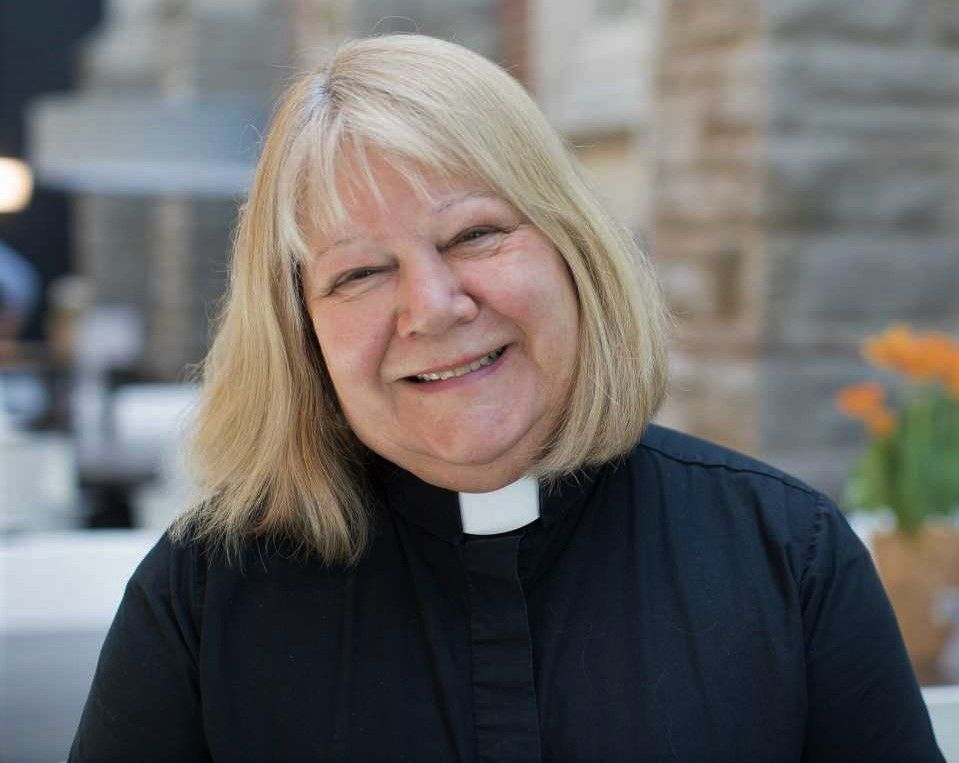
The Rev. Canon Dr. Lizette Larson-Miller
The Rev. Canon Dr. Lizette Larson-Miller
Lizette Larson-Miller
Long a topic close to her heart, the question of eucharist and the baptized had reached a pivotal moment for the Rev. Canon Dr. Lizette Larson-Miller, one of the letter’s signatories. Next month Larson-Miller will continue the conversation as speaker at the School of Theology’s Annual Lectures—a daylong event that includes a series of three separate but related lectures entitled Essential Baptism.”
“The liturgy world is not that big,” says Larson-Miller. When the proposed resolution to eliminate Canon I.17.7 was published, “a number of us [liturgy scholars] were very alarmed.”
“Reaffirming baptism as the sacrament from which all sacraments flow,” the statement clearly defends the theology undergirding the canon. The statement concludes by saying, “These are the basic sacramental convictions of the Episcopal Church, and however the canons express them they need to be acknowledged as such.”
Larson-Miller and others suggested a volume of essays, which she will edit this year, as an appropriate follow-up. The collection is entitled “Essential Baptism,” and explores the essential nature of baptism as the foundational Christian sacrament.
Larson-Miller’s lectures will share thoughts from the upcoming volume, summarizing the history of what she calls a misunderstanding of baptismal ecclesiology. “It is the baptized who make the Church,” explains Larson-Miller.
The Very Rev. James Turrell, dean of the School of Theology and a signatory to the letter opposing communion without baptism, observed, “There is a sacramental ‘grammar’ in the way that baptism and eucharist relate to each other, and that relationship is integral to understanding each sacrament. Professor Larson-Miller brings extensive knowledge of theology and history, pastoral experience, and wisdom to bear on one of the most fundamental issues facing the Church.”
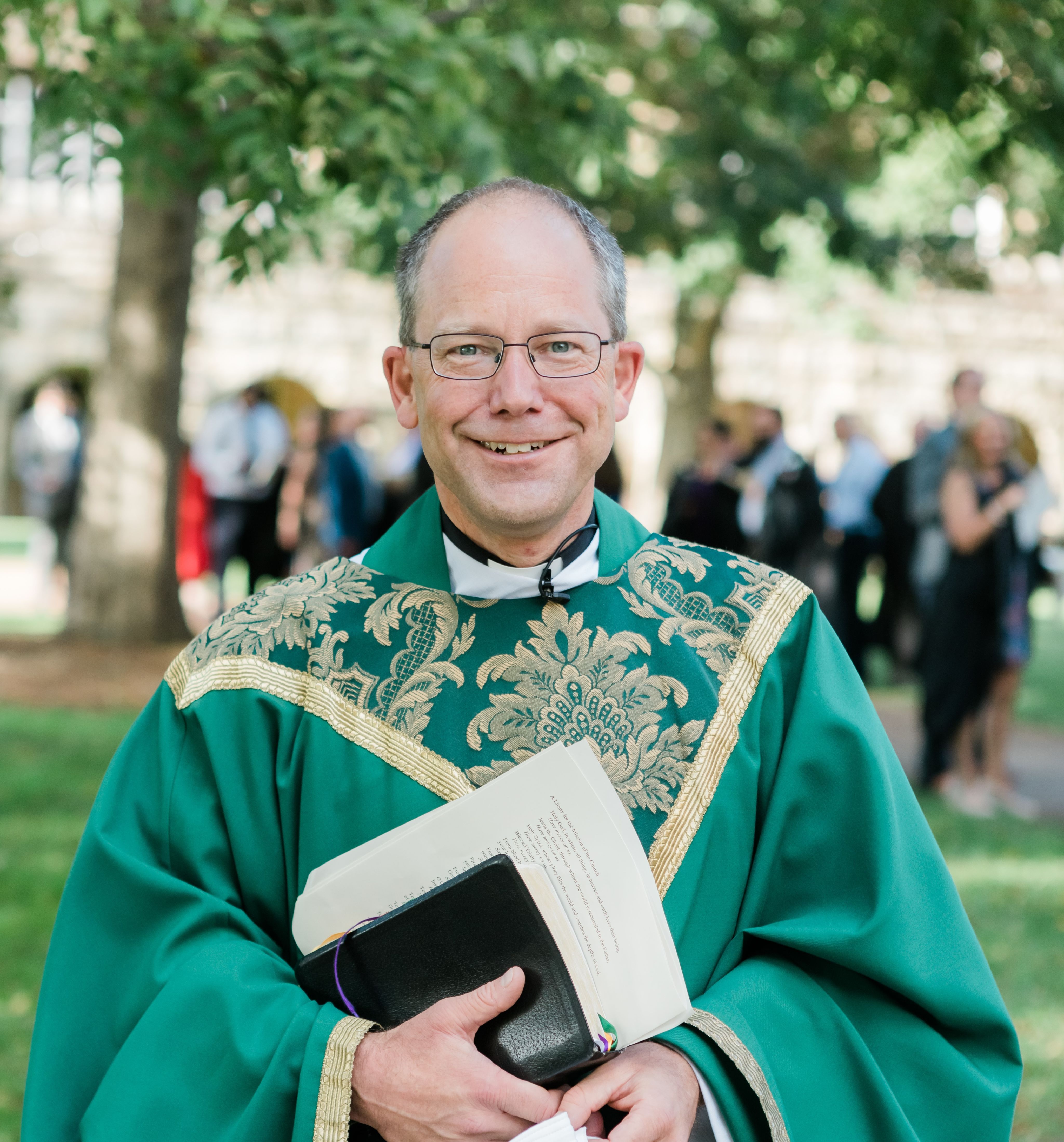
The Very Rev. James Turrell, dean of the School of Theology
The Very Rev. James Turrell, dean of the School of Theology
The Rt. Rev. J. Neil Alexander, another signatory of the letter to the committee, is a longtime colleague of Larson-Miller. “Professor Larson-Miller is one of our Church’s most distinguished scholars with a particularly acute capacity to integrate liturgical history, sacramental theology, and pastoral practice into a meaningful whole,” he says. “She is among our strongest advocates for a baptismal ecclesiology that is not only the taproot of how we think about liturgical and sacramental theology, but how we conceive the very nature of the Church itself, its integrity, and its witness in our time. It is hard to imagine a more timely topic for this year’s lectures or a better person to address it.”

The baptismal font in the Chapel of the Apostles at the School of Theology
The baptismal font in the Chapel of the Apostles at the School of Theology
Essential Baptism
Larson-Miller says the modern notion of pitting baptism against hospitality understands eucharist to be only about welcome, rather than also about a call to be the body of Christ for the world. “How did baptism become opposed to hospitality?” she asks. Ultimately, Larson-Miller blames academia for the lack of catechesis in parishes, leading to a disconnect between the position of the Episcopal Church on baptism and what is happening in many parishes, which welcome the unbaptized to receive communion.
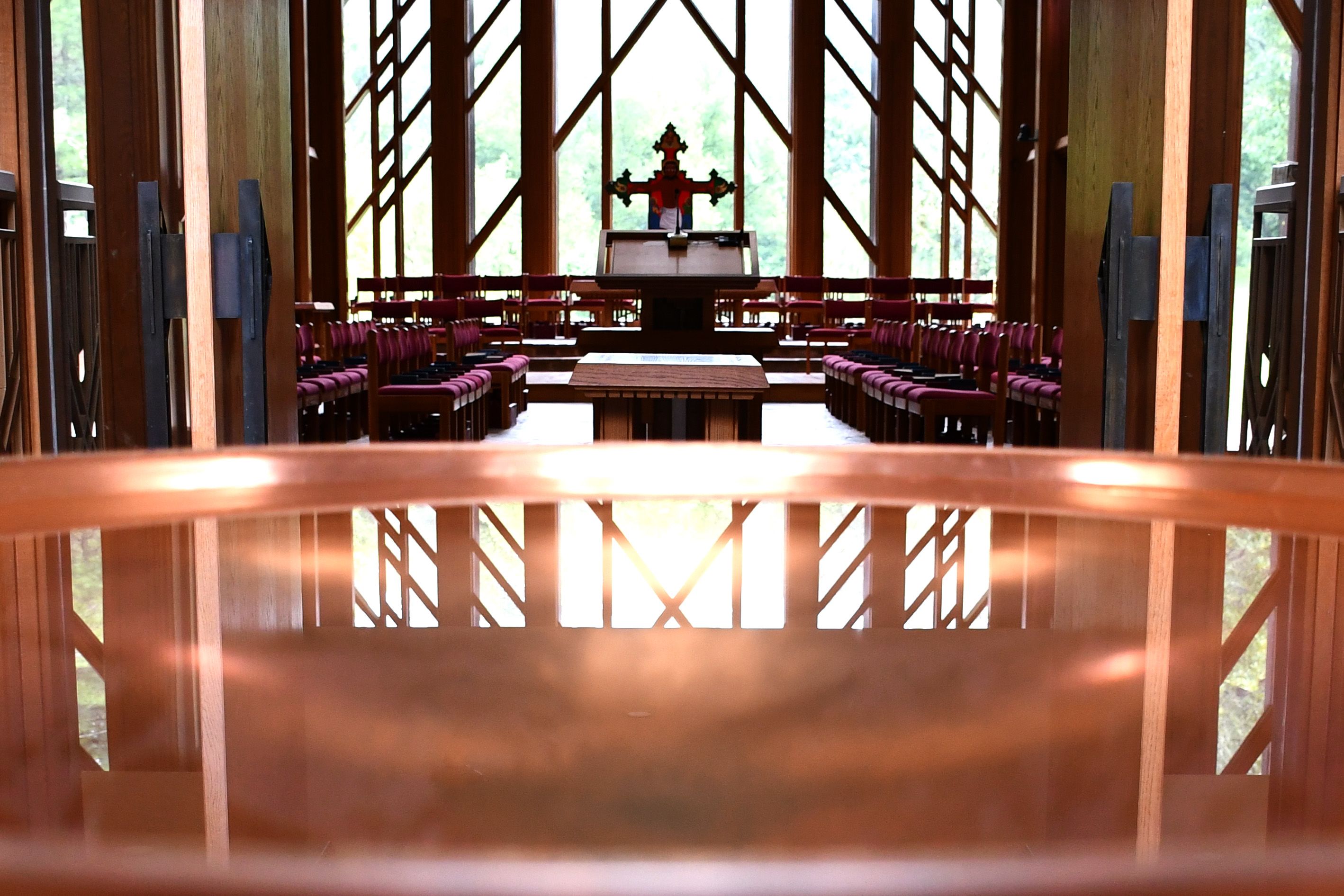
Indeed, “The font is small, and the altar is huge,“ she says, and helping parishioners and clergy understand the centrality of theology—the articulation of what we believe—is essential. “In many parishes, preaching is the only opportunity for catechism. What happened to Sunday School? What happened to adult education?” she asks. “For those baptized as adults, catechesis happens before baptism, but what about those baptized as infants? There must be instruction both before and after baptism, because you cannot explain it all at once.”
The lack of understanding surrounding baptismal ecclesiology became even more evident in 2020 at the start of the pandemic. “In the pandemic, we found that people deeply wanted their communion. It became a commodity. Too many people think about ‘getting communion’ rather than eucharist being something we do.”
Larson-Miller says, “You can come to a eucharistic celebration in a parish and not be a baptized person. You can stand in the room. But you're not making eucharist, because baptism makes the Church, and the Church makes the eucharist; if you're not baptized, you're not making eucharist.”
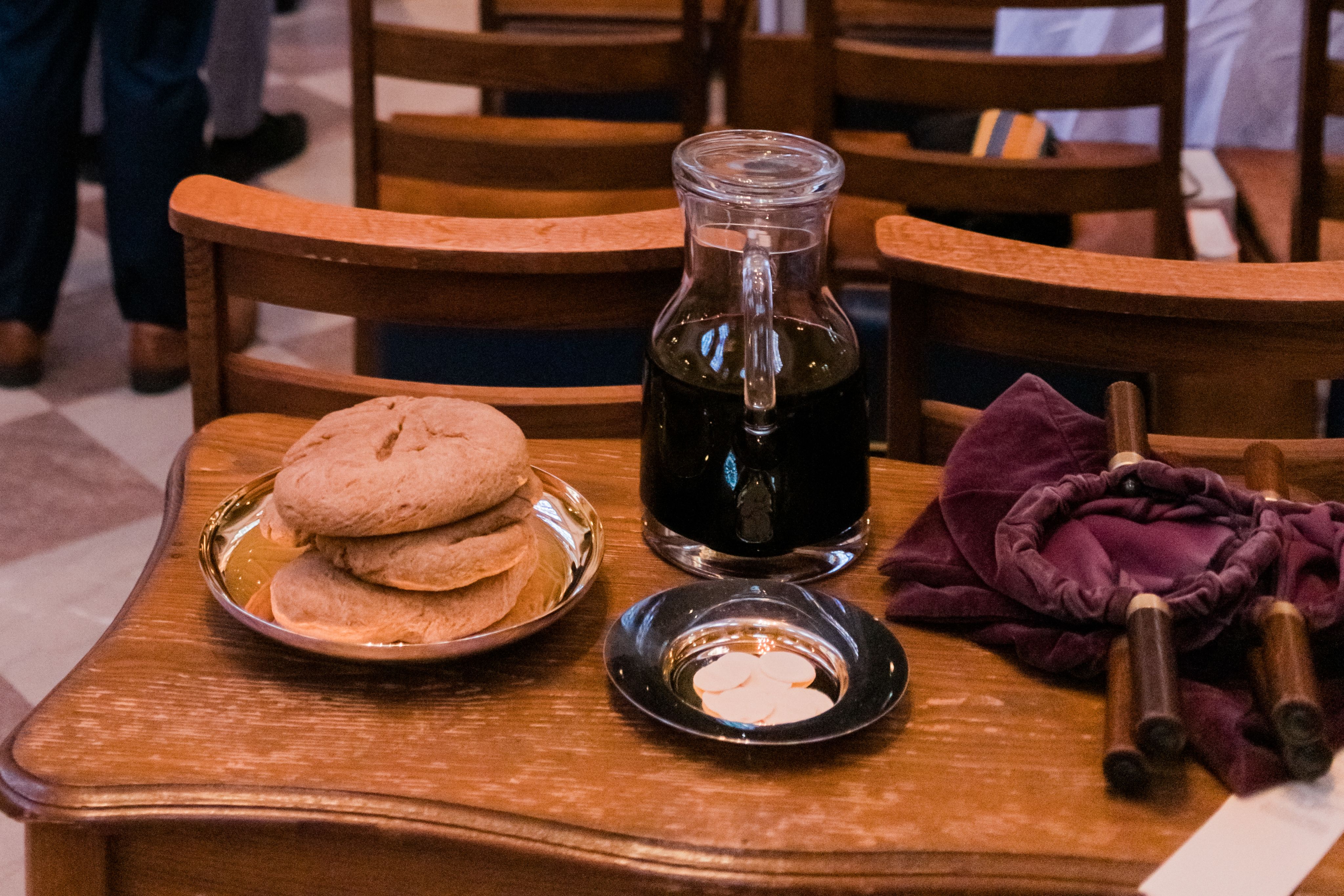
She continues, “We often assume that communion is a thing, an object that we receive. But it is not. Eucharist is an encounter with the living God. We don't celebrate the eucharist just for ourselves. We celebrate the eucharist for the world. Eucharist doesn’t let you off the hook; it obligates you to be Christ for the world.”
A Long and Winding Road
Raised Roman Catholic, Larson-Miller is proud of her Catholic roots. When asked about her path to ordination in the Episcopal Church, Larson-Miller has a story to tell.
With degrees in conducting and church music under her belt, Larson-Miller began working toward a master of arts in liturgical studies degree at St. John’s University in Collegeville, Minnesota. “I really just wanted to be a better church musician,” explains Larson-Miller about the beginning of her academic career in the liturgy.
With the liturgical spark lit, Larson-Miller continued her studies and earned a Ph.D. at the Graduate Theological Union in Berkeley, California—an ecumenical and interfaith consortium where her studies were based at the Jesuit School of Theology. While there, Larson-Miller says, her Jesuit instructors began to ask if she had ever thought about ordination. “I said, ‘Yes, but that's not going to work because we don't ordain women!’” she shares with a laugh, still amused that ordained ministry was first suggested to her in Jesuit circles.
Her first teaching position was at a Catholic university—Loyola Marymount in Los Angeles. While there, she was invited to sing in the choir at St. Alban’s Episcopal Church. She says, “It was in that parish that people said, ‘Yeah, we think the Jesuits were right. We think you are called to ordination.’” It was then that she began discernment and was sponsored in the Diocese of Los Angeles through St. Alban’s. “Most people do the ordination track and then perhaps they go on to get a Ph.D.; I did the whole thing backwards.”
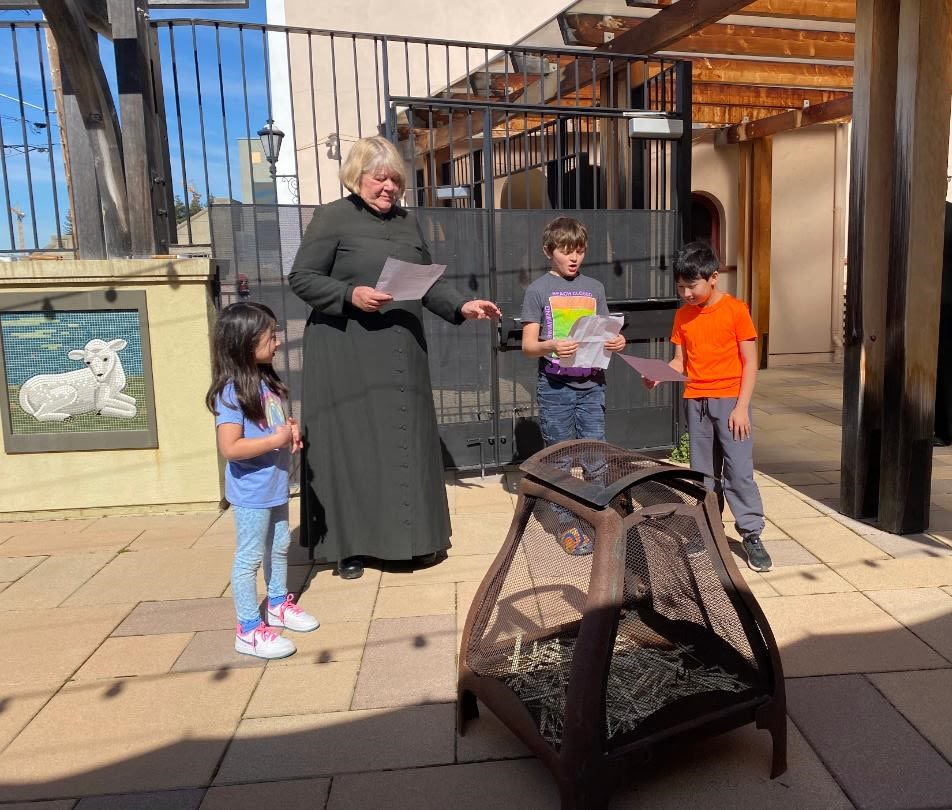
The Rev. Canon Dr. Larson-Miller burns palms.
The Rev. Canon Dr. Larson-Miller burns palms.
To further complicate the transition, in the middle of her discernment process, Larson-Miller took a position teaching liturgy at the famously Roman Catholic University of Notre Dame. The students and faculty were wonderful, but the ecclesial mismatch was difficult. An invitation to teach liturgy at Church Divinity School of the Pacific, in Berkeley, California, resolved the crisis. She was ordained to the transitional diaconate in 2003 by Bishop J. Jon Bruno and ordained to the priesthood in 2004 by Bishop Chester Talton.
Her academic career later took Larson-Miller north of the border to Huron University College (University of Western Ontario) where she taught for seven years before recently accepting a new position on the dispersed faculty at Bexley Seabury Seminary in Chicago.
A Better Understanding
Why is it important to fully understand the Church’s position on baptism and eucharist and to clarify the “misunderstanding of baptismal ecclesiology?”
“The centrality of Holy Baptism is not a new idea in the history of theology, but, in the last century and a half, the strong reassertion that our theology of Holy Baptism is to be generative of all further reflections on ecclesiology—eucharistic faith and practice, holy orders, lay ministry, and so much more—has unquestionably been a principal source of renewal with respect to the Church’s identity and witness,” says Alexander. “It has also not been without unintended consequences that have largely resulted from acting upon well-intended impulses rather than serious theological engagement and deep reflection. I am excited to hear from Professor Larson-Miller about what is at stake in the present moment and how she might guide us toward a more faithful future.”
A more faithful future and a deeper understanding is what the School of Theology will offer Sept. 27 at the 2023 Annual Lectures. The lecture series will take place on the campus of the University of the South. The lectures are free and open to the public, and will also be livestreamed for those unable to attend in person. See the full details and lecture schedule here.
